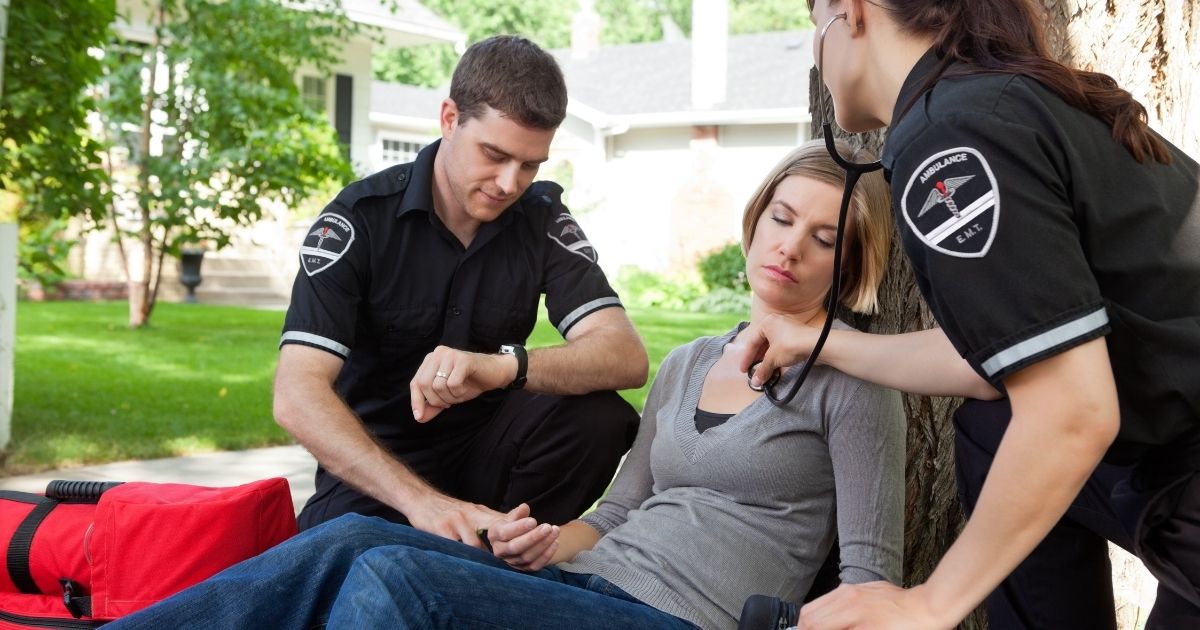Many people do not show signs of serious injury right away after a car accident. Along with a desire to convince themselves that they escaped unharmed, they often make the mistake of refusing medical treatment immediately following the accident. Health is the most critical concern after being involved in a collision, so refusing medical treatment at the scene, no matter what the reason, could end up badly.
Injuries sometimes present themselves after the fact, causing physical pain and money as time moves forward. Thus, people often become tangled in a web of complications when they have refused immediate treatment.
Filing a claim when treatment has been refused does not make for a better case; it could cause unnecessary hassles and elongate or destroy the case. Knowing all the facts, therefore, is beneficial.
What Should You Do Immediately After a Crash?
No person can properly self-diagnose their physical state after an accident. After an accident, a person is often in a disoriented mental state, usually brought on by a rush of adrenalin or shock. This is why refusing treatment at the scene is highly ill-advised.
Allow the professionals at the scene to make an initial assessment. If an officer asks you if you need an ambulance, you should at least comply with allowing an EMT to look at you. By the time the EMT gets there, you may realize that you have possibly suffered an injury. Its reality may also have convinced you to seek medical care.
Whether an ambulance takes you or you are capable of getting to a medical facility on your own, you should go. Having a doctor examine you and the necessary tests could find an injury that otherwise might not be discovered until the damage worsens.
If no police are present, take all the necessary information about the other driver: insurance information, drivers license number, address, and phone number. However, the best policy is to call the police to assist you in the procedure.
Be sure to write down what happened in explicit detail, and take pictures. Another important step, if possible, is to find any witness to help you corroborate your story and take down the witness’s information as well.
What Could Happen if You Refuse Treatment?
Refusing immediate medical care could cost you. Not discovering an injury at its onset could become more severe and require a longer recovery time. Another fact worth considering is that medical costs will increase significantly with more severe damage and a longer recovery time.
Besides medical costs, delaying tests or treatment can cause you to linger with pain much longer than necessary. Furthermore, undiagnosed or untreated injuries could lead to a long time out of work. Thus, with prolonged damage and mounting medical bills, refusing medical treatment immediately following an accident could be damaging.
The cost of refusing treatment could also bring severe problems with your claim. Insurance companies are most surely going to contest your injuries because of having refused treatment. A sign of refusal could result in an accusation that your injury was not as severe as you claim. In certain instances, it is even possible that you are accused of having brought on the damage yourself.
A significant problem of refusing treatment is the lack of medical receipts and reports to legitimize your injury and project your future costs. A trail of medical documentation helps your claim and sets a course for future treatments.
Refusing or delaying medical care means that you have failed to take the proper steps to mitigate your damages. The damages you hope to receive could be cut or outright refused. It could go against you if it is determined that you could have limited your injuries and recovery time if you had acted responsibly. Under New Jersey’s modified comparative fault scheme, your percentage of fault will affect your compensation award.
If it is determined that the accident was 49 percent your fault, that percentage of fault will be deducted from the overall compensation award. It is also essential to know that you must be lower than a certain threshold to receive damages. In New Jersey, there is a threshold of 50 percent, which means your percentage of fault must be lower than that to be eligible for damages. If you are more than 50 percent at fault, you are barred from collecting damages. This is why it is imperative to contact a lawyer if you have been involved in a serious accident.
Hazlet Car Accident Lawyers at Mikita & Roccanova Represent Clients Seeking Damages for Injuries Sustained in a Car Accident
If you have a severe injury because of a collision, you need an experienced legal team. To learn more, speak with one of our Hazlet car accident lawyers at Mikita & Roccanova. Call us at 732-705-3363 or contact us online to schedule a free consultation. Located in Hazlet and Highland Park, New Jersey, we serve clients in Ocean County, Sussex County, Neptune, Middlesex County, and Pennsylvania.


